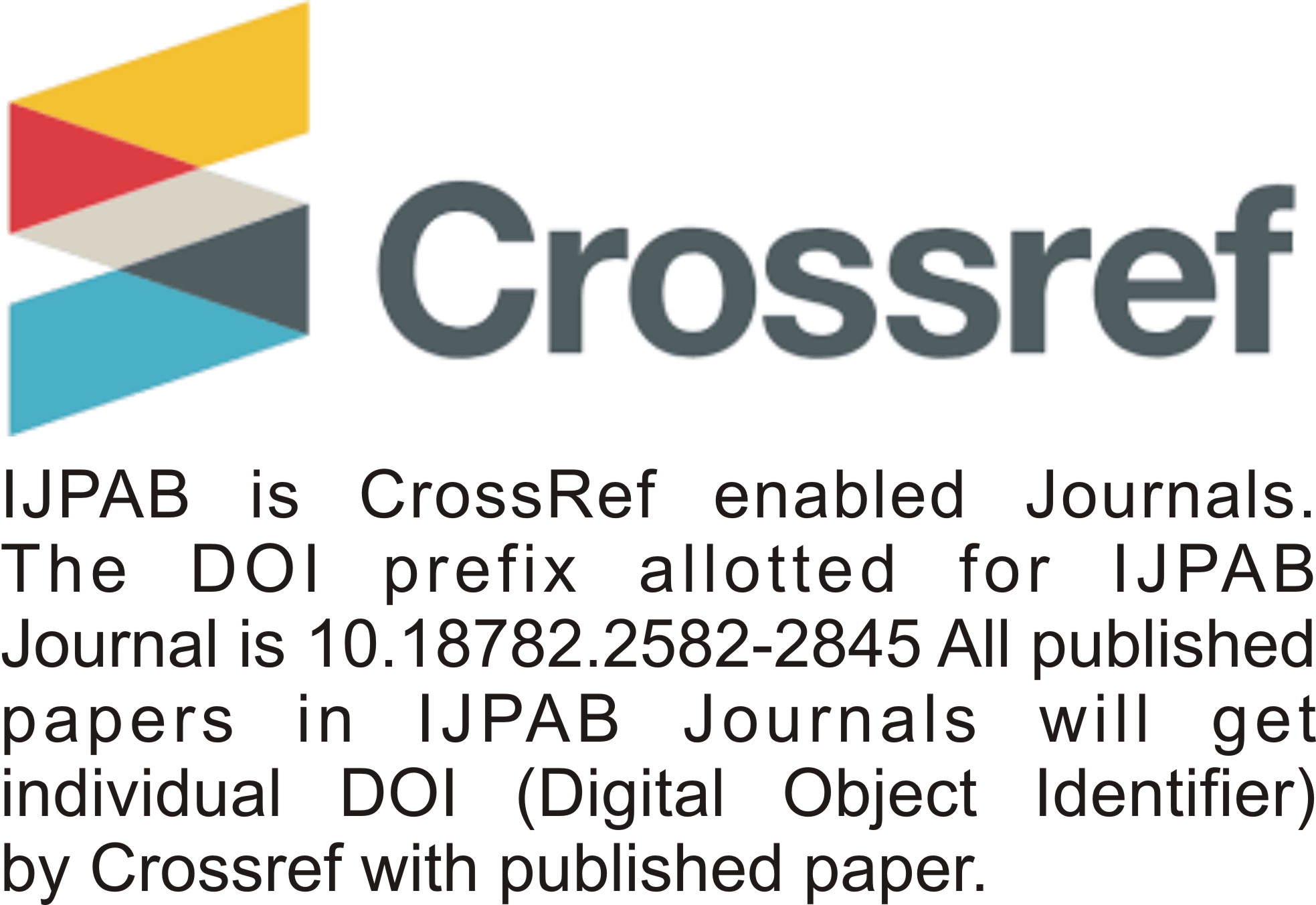-
No. 772, Basant Vihar, Kota
Rajasthan-324009 India
-
Call Us On
+91 9784677044
-
Mail Us @
editor@ijpab.com
Indian Journal of Pure & Applied Biosciences (IJPAB)
Year : 2024, Volume : 12, Issue : 4
First page : (20) Last page : (32)
Article doi: : http://dx.doi.org/10.18782/2582-2845.9122
Development of Alcohol-Tolerant Yeast Strains and Assessment of their Fermentation Efficiency
Ananthalakshmi Ranganathan1* ![]() , Anjali Yadav2, Shubhi Bhagwat2, Seema Paroha1, Sonali Nigam2, Shivam Pandey1 and Alka Gupta1
, Anjali Yadav2, Shubhi Bhagwat2, Seema Paroha1, Sonali Nigam2, Shivam Pandey1 and Alka Gupta1
1National Sugar Institute, Kanpur, Uttar Pradesh, India
2St. Aloysius College (Autonomous), Jabalpur, Madhya Pradesh, India
*Corresponding Author E-mail: ananthuknocks@gmail.com
Received: 25.02.2024 | Revised: 5.04.2024 | Accepted: 16.05.2024
ABSTRACT
Ethanol consumption rises with urbanization as people seek alternative fuels, industrial solvents, cleaning agents and preservatives. The synthesis of ethanol by Saccharomyces cerevisiae is influenced by a number of intrinsic variables, including fermentation conditions such as temperature, pH, ethanol concentration and sugar concentration. Ethanol is the main result of yeast sugar fermentation under anaerobic conditions. On the other hand, ethanol may inhibit the activity of yeast cells like yeast growth, viability, and fermentation rates. The current study focuses on developing alcohol-tolerant strains by inducing alcohol stress. The developed alcohol-tolerant strains are studied for their morphological and biochemical characteristics and evaluated for their fermentation efficiency. The testing results revealed that all the produced alcohol-tolerant strains were able to grow well at alcohol concentrations of 10%, 12%, 14%, 16%, 18%, and 20%. The examination of developed alcohol-tolerant strains revealed that all the strains are of Saccharomyces cerevisiae and are able to ferment sucrose to ethanol. The fermentation efficiency of control yeasts (CM and CY) was determined to be 93.7%. Alcohol-tolerant strains with 18% and 20% alcohol strength demonstrated fermentation efficiency ranging from 88% to 91%. The alcohol-tolerant strains M4 – molasses-based culture and Y4– YPD-based culture with 16% alcohol strength achieved the highest fermentation efficiency of 98.2% and 98.3%, respectively. The alcohol-tolerant yeast strains - M4 and Y4 could serve as potential strains for fermentation even under high ethanol concentrations and could be used at the industrial level for fermentation of various raw materials in order to increase bioethanol output.
Keywords: Distillery; Ethanol; Molasses; YPD medium and Alcohol Tolerance.
Full Text : PDF; Journal doi : http://dx.doi.org/10.18782
Cite this article: Ranganathan, A., Yadav, A., Bhagwat, S., Paroha, S., Nigam, S., Pandey, S., & Gupta, A. (2024). Development of Alcohol-Tolerant Yeast Strains and Assessment of their Fermentation Efficiency, Ind. J. Pure App. Biosci.12(4), 20-32. doi: http://dx.doi.org/10.18782/2582-2845.9122


